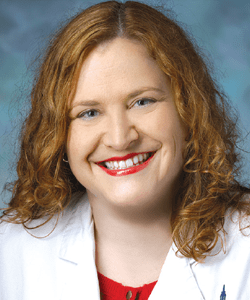Recent studies suggest that obese patients may be vulnerable to poorer physician–patient communication because some doctors may hold negative attitudes toward these individuals. “Prior studies have shown that some physicians have less respect for their obese patients, viewing them as being lazy or unmotivated,” explains Kimberly A. Gudzune, MD, MPH. “These negative attitudes may come across during patient encounters.” Yet, no studies had previously assessed whether patient obesity altered physician–patient interactions with regard to biomedical and psychosocial dialogue and rapport building. In a study published in Obesity, Dr. Gudzune and colleagues sought to address this research gap by analyzing audio recordings of visits by 208 patients with high blood pressure who saw 39 primary care physicians (PCPs).
Empathy Matters
According to the study, patient weight did not appear to play a role in the quantity of physicians’ medical questions and advice, counseling, or treatment regimen discussions. However, PCPs built significantly less emotional rapport with their obese patients than with those who were normal weight. PCPs were more likely to show empathy, concern, and understanding with patients of normal weight by using words and phrases that reassured and legitimized patients’ feelings, regardless of the medical topic being discussed.
The findings raise concern about how these low levels of emotional rapport may impact obese patients, according to Dr. Gudzune. “This may weaken the physician–patient relationship,” she says. “It may also reduce the likelihood that patients will adhere to their doctor’s recommendations and may decrease the effectiveness of behavior-change counseling, which are vital elements to helping obese patients lose weight and improve health.”
Building an Alliance
Patients usually resent feeling that they are judged negatively because of their weight. Bonding and empathy are essential to building an alliance between physicians and patients, Dr. Gudzune says. “Physicians are medical advisors, but we also need to be empathetic advocates for patients. Doing so can improve adherence to medical recommendations and responses to behavior-change counseling. It can also increase patient satisfaction.”
“We need to develop skills among practicing physicians and those in training on ways to overcome potential weight biases.”
Dr. Gudzune says that adding video to the audio component that her study group analyzed may provide more insights on the issue. “Using video can enable us to identify non-verbal communication behaviors,” she says. “Ideally, the lessons we learned from our study and those from future analyses will be used to develop interventions that minimize this problem. In the meantime, it’s important to be mindful of any negative attitudes physicians may have with obese patients. If such biases are identified, the next step is to make efforts to be more empathetic.”




 admin
admin